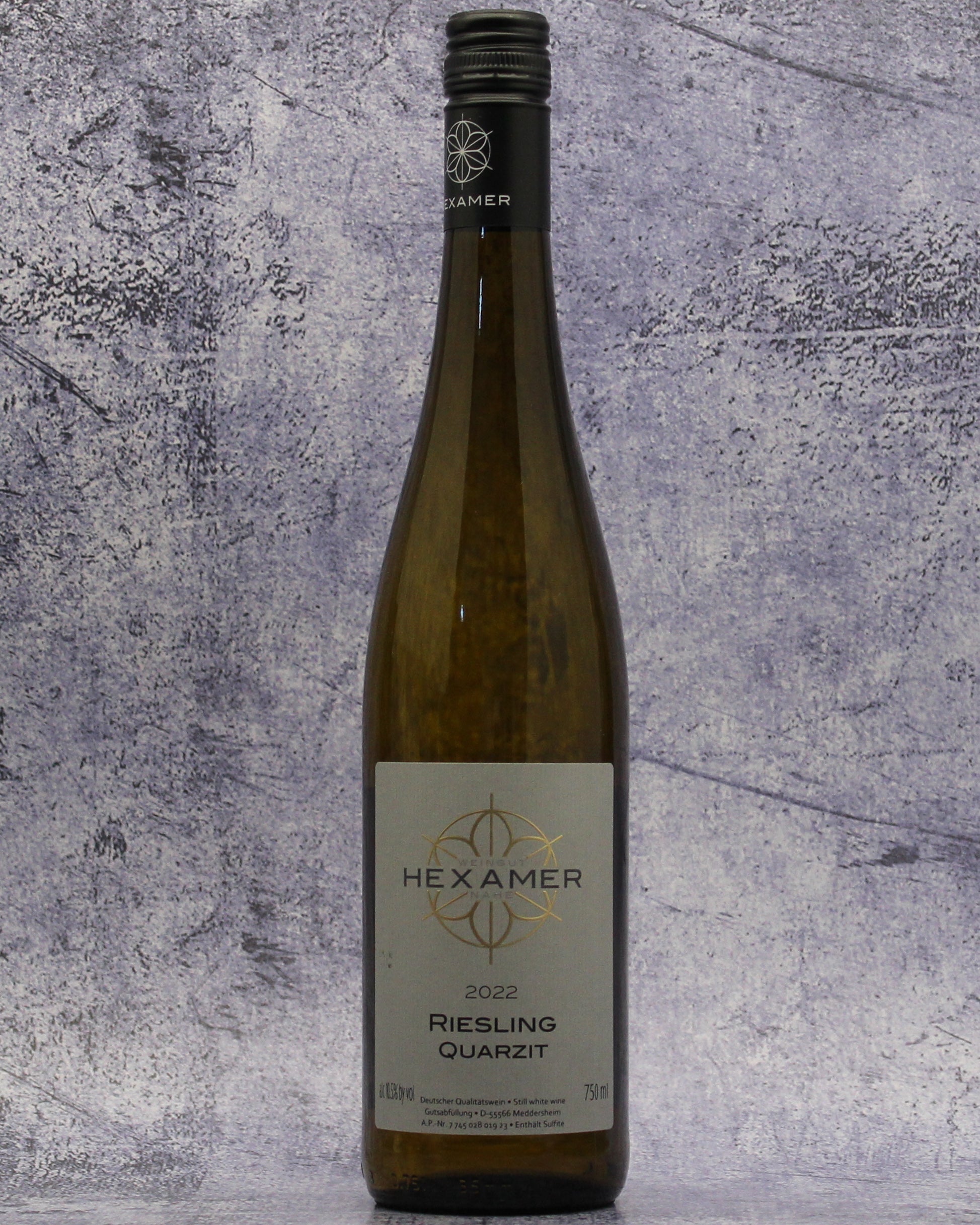From: Meddersheim, Nahe, Germany
Varietal: Reisling
Taste: This is a pale straw color with greenish hues. The nose shows aromas of white peach, green apple, and citrus, with delicate floral notes of cherry blossoms. The palate is vibrant and balanced, offering flavors of white peach, lime, and quince, seamlessly integrated with a touch of citrus zest and a subtle underpinning of minerality from the quartzite-rich soil. Just a touch of subtle sweetness balances nice, refreshing acidity.
Pairing: For an ideal pairing, consider serving this Riesling with lighter fare, such as fresh seafood, particularly shellfish, or a classic German dish like Wiener Schnitzel. Its bright acidity and friendly profile make it a delightful companion to Asian cuisines, balancing the spices and flavors of Thai, Japanese, or Vietnamese dishes. Some specific pairing options include matching this wine with calamari (check out the recipe below), sea scallops in browned butter, roasted fish with scallions and ginger, croquettes (korokke in Japanese), karaage or katsu with pickled cucumbers, Thai curry with silken tofu, Thai-styled clams in coconut broth, pork meatballs with ginger and fish sauce, fresh spring rolls, and glass noodles with crab.
Spicy Thai Squid With Chiles and Cilantro
By Melissa Clark
About: Weingut Hexamer, located in Meddersheim in Germany's Nahe wine region, is a family-owned estate renowned for its dedication to producing high-quality wines that reflect the area's unique terroir. The estate spans approximately 35 hectares and is heavily focused on Riesling, which accounts for about 60% of its vineyards. Other cultivated varieties include Pinot Noir, Pinot Blanc, Pinot Gris, Müller-Thurgau, and small amounts of Sauvignon Blanc and Gewürztraminer.
The Hexamer family has been involved in viticulture for several generations. Harald Hexamer has managed the estate since 1999. While the family has a long-standing history in viticulture, Harald's leadership marked the beginning of the estate's commercial wine production in the late 1990s.

